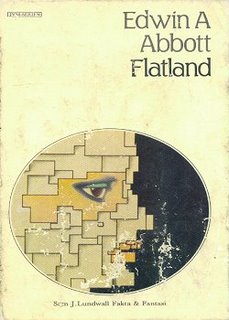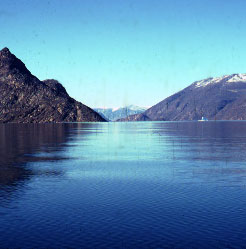 Mars Pancam
Mars PancamFrom the Cornell University Department of Astronomy, the Pancam project website features the findings of a high-resolution stereo camera that takes color pictures of the surrounding Martian landscape from the Mars Exploration Rovers. The site features a large collection of images (including panoramas and Mars surface features), Pancam technical details, project information, a list of relevant publications and a data tracking database.
English Scholar.com: A compendium of Electronic Resources
This site has a nice selection of linked topics (left margin) and covers many aspects of writing and literature. Very useful place to turn to for grammar concerns, formatting, style, publishing.
Morningstar Investment Courses
Morningstar offers some quality, free courses covering stocks, funds, bonds and portfolios.
 Paleoportal
PaleoportalA Paleontology Portal for kids and grown-ups alike. Fun and easy to use, but also full of lots of good information and lots of fossil images navigatable by era. See the exploring time and space section to see fossils by state in the US by era.
Ultimate Google Search Guide
If you are like me, you simply use Google in the quickest, most basic way, ie, put in a word and hit Search. But there is much more you can do to make Google yield up its full usefulness. This site has excellent things worth knowing if you want to be a more sophisticated searcher. Also, on the topic, check-out
Google Research picks for video of the year 2006.Tutorial Ground
If you are a coder or want to learn about coding, this site has much to offer. Home page lists main categories, and there are many; then, within each category, specifics for study of that category.
 Good Link Portals
Good Link Portals
Here are a couple good sites collecting links to quality free educational resources:
Chemistry Coach - A huge link-rich site with links within each division above, clearly applying not just to Chemistry but to all study and learning in every discipline.
Constitutional Rights's Foundation - Still more links here on tons of topics.
The Educator's Reference DeskThe Gateway to 21st Century Skills - Specifically aimed at educators, this site links to quality resources around the net.
 US Child Labor 1800 - 1930
US Child Labor 1800 - 1930
If you are interesting in the topic of child labor throughout this era in US history, Harvard has posted an extensive list of 250 useful texts freely available just by clicking on the links.
Scientists I Should Know
Among several links, this blog post links to a
great pdf with the genealogy of scientists and their contributions.
Internet Modern History Sourcebook
Extensive list of primary sources for European and American history studies.
 Born on a Blue Day
Born on a Blue Day
"When Daniel Tammet thinks about numbers, each one has a distinct personality. Thirty-seven is lumpy, for example; four is shy. He has a rare form of autism that gives him astonishing mental powers, such as effortlessly calculating huge numbers in his head with the speed of a computer." An interesting interview from NPR's talk of the nation. You can also read the first chapter of the book.
Firey Teaching methods
Another interesting talk of the nation interview:
"Rafe Esquith is a trail-blazing, fast-talking, fifth-grade teacher who has racked up a slew of awards for his work at a public school in Los Angeles. Ninety-two percent of the children at the school live in households below the poverty level, but Esquith's students have reached the pinnacle of academic and artistic success. His fifth-graders are already tackling high-school fare: algebra, philosophy and Shakespeare." Odysseus Unbound"Where is the Ithaca described in such detail in Homer's Odyssey? The mystery has baffled scholars for over two millennia because Homer's descriptions bear little resemblance to the modern island called Ithaki, one of the Ionian Islands off the coast of western Greece. Homer himself is thought to have lived far away in Asia Minor (western Turkey) several hundred years after the events of the Odyssey, so most experts think that he based his poem on stories he had heard of distant Ithaki. The geographical mismatch in his poems perhaps reflected his lack of familiarity with the Ionian Islands, together with the fact that he was composing a poem rather than a travel guide.
Odysseus Unbound"Where is the Ithaca described in such detail in Homer's Odyssey? The mystery has baffled scholars for over two millennia because Homer's descriptions bear little resemblance to the modern island called Ithaki, one of the Ionian Islands off the coast of western Greece. Homer himself is thought to have lived far away in Asia Minor (western Turkey) several hundred years after the events of the Odyssey, so most experts think that he based his poem on stories he had heard of distant Ithaki. The geographical mismatch in his poems perhaps reflected his lack of familiarity with the Ionian Islands, together with the fact that he was composing a poem rather than a travel guide.
In 2003 a radical alternative was proposed. What if Homer has been right all along? What if this mismatch has occurred not because of geographical errors by the poet, but because of geological changes in the landscape? Could something unprecedented have altered the layout of these islands since the time of the Trojan War around 1200 BC?
Since 2003 an interdisciplinary project team of geologists, classicists and archaeologists has been testing this hypothesis and the results that have emerged are astonishing. We have been able to reconstruct the former layout of these islands and it provides a compelling solution to the long-established enigma of the location of Homer's Ithaca."Homer's great epic may have more reality embedded in it than has previously been thought. In addition to perhaps finding the place here Odysseus actually is said to have lived, science working with history and literature helps us better understand our past. Additionally, it is worth noting that instead of keeping such scholarly studies to be shared by other scholars and in the journals and books, now scholars can post to blogs or web sites to gain a wider audience and also perhaps to market their findings.






































